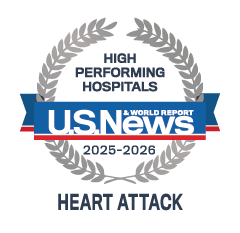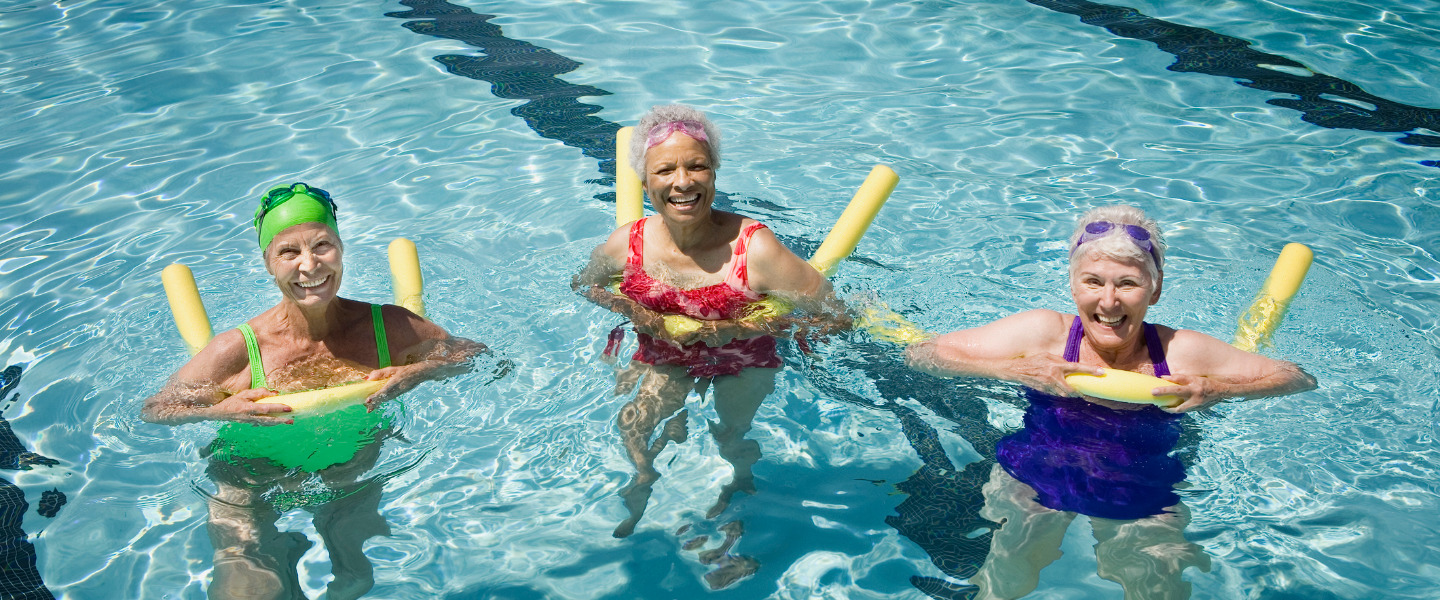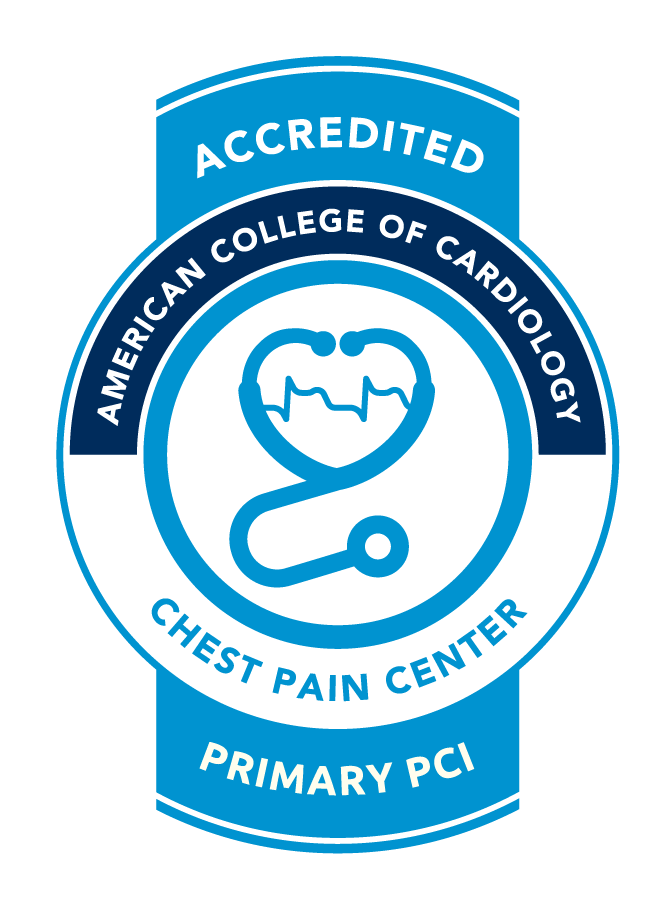Heart Attack
Heart Attack
Heart Attack
A heart attack is a medical emergency that can seem like it comes out of nowhere. But in many cases, it’s preventable. At Carilion Clinic, we focus on both treating and preventing heart attacks.
We provide lifesaving heart attack care using the latest heart attack treatments. We treat more than 700 heart attacks each year. We also prevent a lot of them by treating heart disease, which is the top cause of heart attacks.
The main heart attack symptom is chest pain, but there are others. If you think you're having a heart attack (know the signs), call 9-1-1 immediately.
A heart attack is a medical emergency that can seem like it comes out of nowhere. But in many cases, it’s preventable. At Carilion Clinic, we focus on both treating and preventing heart attacks.
We provide lifesaving heart attack care using the latest heart attack treatments. We treat more than 700 heart attacks each year. We also prevent a lot of them by treating heart disease, which is the top cause of heart attacks.
The main heart attack symptom is chest pain, but there are others. If you think you're having a heart attack (know the signs), call 9-1-1 immediately.
Your heart is a muscle. All muscles need oxygen to survive, and blood brings oxygen to your muscles.
If that blood flow is cut off, the muscle can start to die. A heart attack happens when that blood flow is cut off.
The official name is myocardial infarction. A heart attack isn't the same as cardiac arrest (when the heart stops beating). But it can lead to cardiac arrest.
The sooner emergency treatment begins, the better your chances are of surviving the heart attack.
What causes a heart attack?
The leading cause of heart attack is coronary artery disease (CAD). CAD happens when plaque builds up in the walls of the arteries that supply your heart with blood.
If too much plaque builds up, the arteries narrow, and blood can't get through. More specifically, a blood clot may form around the plaque. This can completely block the flow.
You might also hear the acronym STEMI, which means the coronary artery is completely blocked. NSTEMI means the artery is only partially blocked.
Some people have little warning that this is happening. You may not know you have CAD until you have a heart attack.
Heart attack symptoms
Not everyone has the same heart attack symptoms.
The most common ones are:
- Pressure or squeezing in the center of chest
- Shortness of breath
- Shooting pain through shoulders, arms, neck or jaw
- Heartburn, nausea or indigestion-like pain
- Dizziness, fainting or sudden abnormal sweating
- Extreme fatigue or exhaustion
Women may experience signs that may not be as easy to recognize, such as fatigue or feeling flu-like symptoms. Call 9-1-1 if you're having heart attack symptoms.
Learn more about heart attack signs and how they differ in men and women.
Heart attack risk factors
Anyone can have a heart attack, but certain risk factors increase your chances.
The 3 main risk factors for a heart attack are:
- High blood pressure
- High cholesterol
- Smoking
Age and family history are risk factors you can't control.
What you can control:
- Whether you smoke
- Your diet
- How much exercise you get
- If you get help to reduce stress
Your primary care doctor can talk to you about ways to reduce your heart attack risk. They may also refer you to a cardiologist for more specific concerns. A cardiologist is like a primary care doctor for your heart.
Learn more about seeing a cardiologist at Carilion.
What Is a Heart Attack?
Your heart is a muscle. All muscles need oxygen to survive, and blood brings oxygen to your muscles.
If that blood flow is cut off, the muscle can start to die. A heart attack happens when that blood flow is cut off.
The official name is myocardial infarction. A heart attack isn't the same as cardiac arrest (when the heart stops beating). But it can lead to cardiac arrest.
The sooner emergency treatment begins, the better your chances are of surviving the heart attack.
What causes a heart attack?
The leading cause of heart attack is coronary artery disease (CAD). CAD happens when plaque builds up in the walls of the arteries that supply your heart with blood.
If too much plaque builds up, the arteries narrow, and blood can't get through. More specifically, a blood clot may form around the plaque. This can completely block the flow.
You might also hear the acronym STEMI, which means the coronary artery is completely blocked. NSTEMI means the artery is only partially blocked.
Some people have little warning that this is happening. You may not know you have CAD until you have a heart attack.
Heart attack symptoms
Not everyone has the same heart attack symptoms.
The most common ones are:
- Pressure or squeezing in the center of chest
- Shortness of breath
- Shooting pain through shoulders, arms, neck or jaw
- Heartburn, nausea or indigestion-like pain
- Dizziness, fainting or sudden abnormal sweating
- Extreme fatigue or exhaustion
Women may experience signs that may not be as easy to recognize, such as fatigue or feeling flu-like symptoms. Call 9-1-1 if you're having heart attack symptoms.
Learn more about heart attack signs and how they differ in men and women.
Heart attack risk factors
Anyone can have a heart attack, but certain risk factors increase your chances.
The 3 main risk factors for a heart attack are:
- High blood pressure
- High cholesterol
- Smoking
Age and family history are risk factors you can't control.
What you can control:
- Whether you smoke
- Your diet
- How much exercise you get
- If you get help to reduce stress
Your primary care doctor can talk to you about ways to reduce your heart attack risk. They may also refer you to a cardiologist for more specific concerns. A cardiologist is like a primary care doctor for your heart.
Learn more about seeing a cardiologist at Carilion.
When someone is having a heart attack, the most important thing is to restore blood flow as quickly as possible. Every minute the heart isn't getting blood, damage can be happening. Hearts can heal from heart attacks, but some damage can be permanent.
The treatment depends on how complete the blockage is. For complete blockages, we do something called PCI. This is a cardiac catheterization procedure.
PCI stands for percutaneous artery intervention (we used to call this angioplasty with a stent). We use a catheter to open the blocked artery and get blood flowing again.
As an accredited Chest Pain Center, Carilion has expertise in doing this procedure. We do hundreds of them every year.
For less severe heart attacks (where the blockage isn't complete), we may start with medicine. But sometimes, we do PCI for these heart attacks, too.
In the most serious case, we may need to do emergency bypass surgery. This surgery is called coronary artery bypass grafting. It creates new pathways around the blocked artery.
Cardiac rehab after heart attack
After you recover from your heart attack, your doctor will prescribe cardiac rehab.
Cardiac rehab is a medically supervised exercise program that helps you improve your heart health. It can help you feel better, and it can lower your risk of having another heart attack.
Our Carilion cardiac rehabilitation program helps you recover faster, feel better and get healthier after a heart attack. Our trained specialists use exercise and wellness conditioning to help you regain strength and endurance.
- Aerobic exercise to elevate your heart rate and improve blood flow
- Strength training to improve your muscle strength and stamina
- Educate you about your heart health
How We Treat a Heart Attack
When someone is having a heart attack, the most important thing is to restore blood flow as quickly as possible. Every minute the heart isn't getting blood, damage can be happening. Hearts can heal from heart attacks, but some damage can be permanent.
The treatment depends on how complete the blockage is. For complete blockages, we do something called PCI. This is a cardiac catheterization procedure.
PCI stands for percutaneous artery intervention (we used to call this angioplasty with a stent). We use a catheter to open the blocked artery and get blood flowing again.
As an accredited Chest Pain Center, Carilion has expertise in doing this procedure. We do hundreds of them every year.
For less severe heart attacks (where the blockage isn't complete), we may start with medicine. But sometimes, we do PCI for these heart attacks, too.
In the most serious case, we may need to do emergency bypass surgery. This surgery is called coronary artery bypass grafting. It creates new pathways around the blocked artery.
Cardiac rehab after heart attack
After you recover from your heart attack, your doctor will prescribe cardiac rehab.
Cardiac rehab is a medically supervised exercise program that helps you improve your heart health. It can help you feel better, and it can lower your risk of having another heart attack.
Our Carilion cardiac rehabilitation program helps you recover faster, feel better and get healthier after a heart attack. Our trained specialists use exercise and wellness conditioning to help you regain strength and endurance.
- Aerobic exercise to elevate your heart rate and improve blood flow
- Strength training to improve your muscle strength and stamina
- Educate you about your heart health
We treat every type of heart disease, from the routine to the rare. In fact, Carilion offers programs and new heart treatments unique to our region, drawing people from across Virginia and neighboring states.

State-of-the-art imaging to catch heart disease early
We use the latest technology to view all areas of your heart, from the structures and blood flow to the degree of plaque build-up. We use advanced nuclear imaging to get pictures of your heart, helping us create the right treatment for you.

Nationally recognized for heart attack care
Rated “high performing” in heart attack care by U.S. News & World Report, Carilion Roanoke Memorial Hospital helps patients get faster treatment and better outcomes when every second counts.
Why Choose Carilion Clinic?
We treat every type of heart disease, from the routine to the rare. In fact, Carilion offers programs and new heart treatments unique to our region, drawing people from across Virginia and neighboring states.
Health and Wellness

How To Prevent a Second Heart Attack

Dealing with Depression After a Heart Attack

Heart Attack in Women: Symptoms Can Differ From Men
Get Care at Carilion Clinic
Your path to better health starts here. Explore comprehensive care options and find the support you need for every step of your wellness journey.
Get Care at Carilion Clinic
Your path to better health starts here. Explore comprehensive care options and find the support you need for every step of your wellness journey.
Get Care at Carilion Clinic
Your path to better health starts here. Explore comprehensive care options and find the support you need for every step of your wellness journey.
Get Care at Carilion Clinic
Your path to better health starts here. Explore comprehensive care options and find the support you need for every step of your wellness journey.

